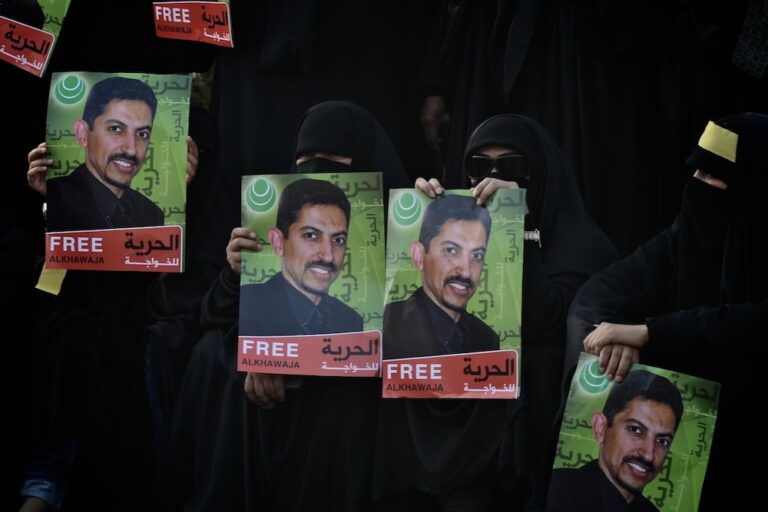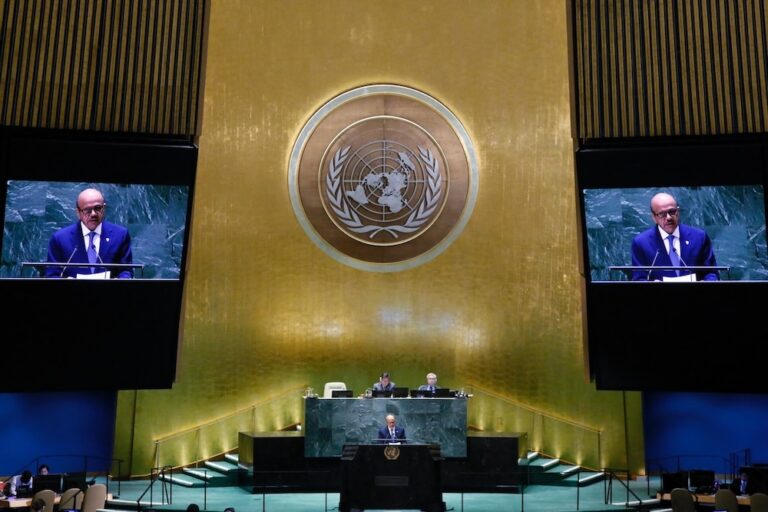Radhika Sainath et Huwaida Arraf, who were responsible for providing video footage for the site http://witnessbahrain.org, were arrested on as they were filming a peaceful demonstration in the capital and deported to the United States.
(RSF/IFEX) – 13 February 2012 – The authorities in Bahrain are still dragging their heels over allowing foreign journalists into the country in the run-up to the first anniversary of the uprising in the Gulf kingdom on 14 February, when demonstrations are expected.
In a statement published on 8 February, the head of the Information Affairs Authority cited the safety of journalists and the “abnormally high volume of requests” between 11 and 18 February as reasons for the failure to grant visas.
Reporters Without Borders dismissed this explanation as spurious. “The denial of visas is clearly part of an attempt by the authorities to impose a media blackout on the eve of the anniversary of the uprising in order to restrict the number of unwanted observers of the expected demonstrations and the crackdown they will probably trigger,” it said.
As demonstrations swelled during the weekend, several foreign journalists were turned back at the airport, although they had the necessary accreditation. On 11 February, a crew from the Japanese television station NHK was refused entry despite having an entry permit from the Information Affairs Authority.
The Bahrain Youth Society for Human Rights reported that an Australian journalist was also refused entry to Bahrain and was put back aboard a plane.
Access to a new website, http://witnessbahrain.org which was launched on 10 February to publicise reports about human rights violations in Bahrain, was blocked the day after its inauguration.
Two American activists, Radhika Sainath et Huwaida Arraf, who were responsible for providing video footage for the site, were arrested on February 11 as they were filming a peaceful demonstration in the capital. They were deported to the United States.
Reporters Without Borders considers the treatment of those working for the website as yet more proof that, contrary to their claims, the authorities are seeking to stifle at any cost the coverage of human rights violations in the country.
The suspension adds to the list of independent news and information websites that have been blocked, including those with streaming video, that are used by activists to distribute real-time images of demonstrations and their repression.


